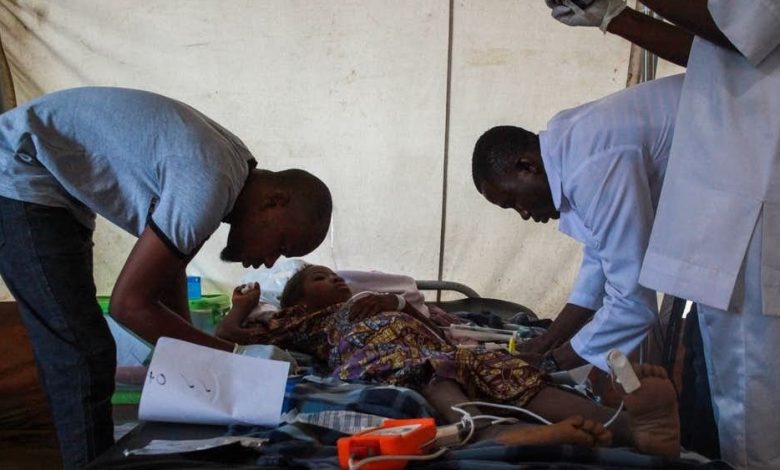Imminent Rise In Malaria Cases, Malnutrition Will Hinder COVID-19 Response, Says MSF

The annual dramatic increase in the rates of malaria transmission and malnourishment in Africa is likely to constitute a stumbling block in the fight against COVID-19 on the continent, Médecins Sans Frontières (MSF) has said.
The international humanitarian medical organisation, also known as Doctors Without Borders, made this projection on Monday during a tweetchat with HumAngle.
The online interview session focused on how global travel restrictions are affecting its activities, COVID-19’s impact on the treatment of and vaccination against other diseases, and how the pandemic affects densely populated settlements.
When it comes to a threat as huge as COVID-19, MSF said mass vaccination is not possible.
“This year, by chance, we did not see regular outbreaks of measles or meningitis requiring mass vaccination,” it noted. “Just in Burkina, we responded to a measles outbreak by a targeted vaccination with a door to door strategy.”
It added, “We are concerned by the peak season when malaria and malnutrition dramatically rise from August to November.”
It will be tougher to deal with all the challenges this year, it explained, because of inflation, shortages in equipment, and the focusing of healthcare facilities on the COVID-19 response. MSF recommended the promotion of preventive healthcare (prophylaxis) such as malaria chemoprevention.
The organisation said travel restrictions, especially in Europe, have led to long delays in the delivery of medical supplies.
“Supply is an issue for personal protective equipment (masks) and drugs as they are not readily available in the quantities required to respond to the high needs resulting from the pandemic,” it observed.
It recommended that people living in displacement camps, densely populated settlements, and small congested shelters be particularly encouraged to maintain good hygiene.
“The COVID virus may spread quickly in the settlements where social distancing is very difficult. Hygiene and access to soap and water must be increased to improve hand-washing,” it said.
“In all our projects, we have strengthened infection prevention and control measures, hygiene facilities, and the establishment of isolation spaces.
“It is essential that people living in camp conditions continue to receive existing basic support. Other critical needs remain – especially food, water and sanitation – as does the need to improve the living conditions for internally displaced people.”
It is estimated that there are up to 100 million cases of malaria each year in Nigeria, causing the death of 300,000 people and contributing to 11 per cent of maternal mortality.
The country accounted for up to a quarter of all malaria cases in 2018, according to the World Health Organisation. Peak malaria transmission takes place during and just after the rainy season in many places.
Support Our Journalism
There are millions of ordinary people affected by conflict in Africa whose stories are missing in the mainstream media. HumAngle is determined to tell those challenging and under-reported stories, hoping that the people impacted by these conflicts will find the safety and security they deserve.
To ensure that we continue to provide public service coverage, we have a small favour to ask you. We want you to be part of our journalistic endeavour by contributing a token to us.
Your donation will further promote a robust, free, and independent media.
Donate HereStay Closer To The Stories That Matter




